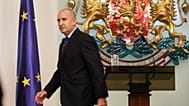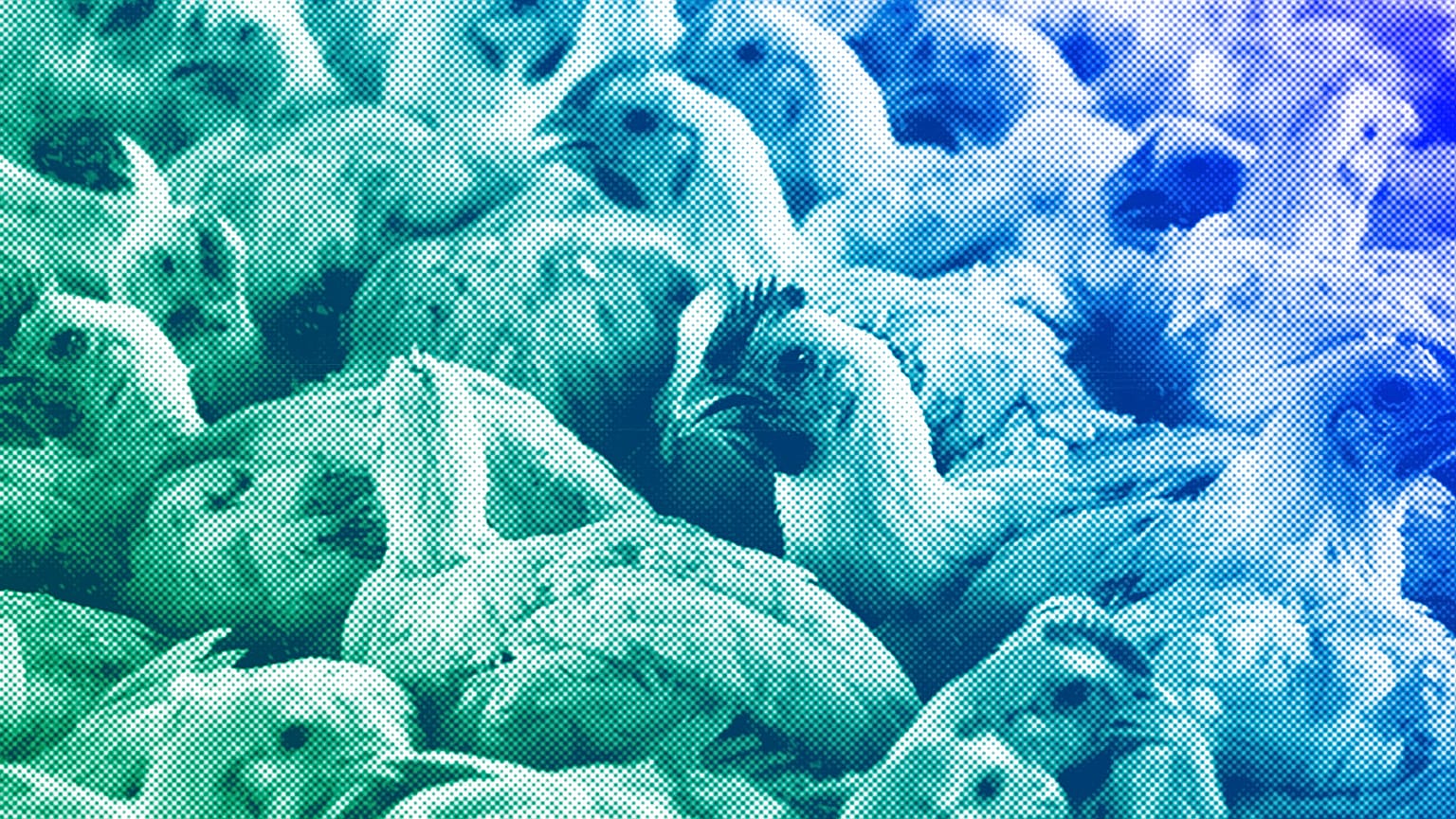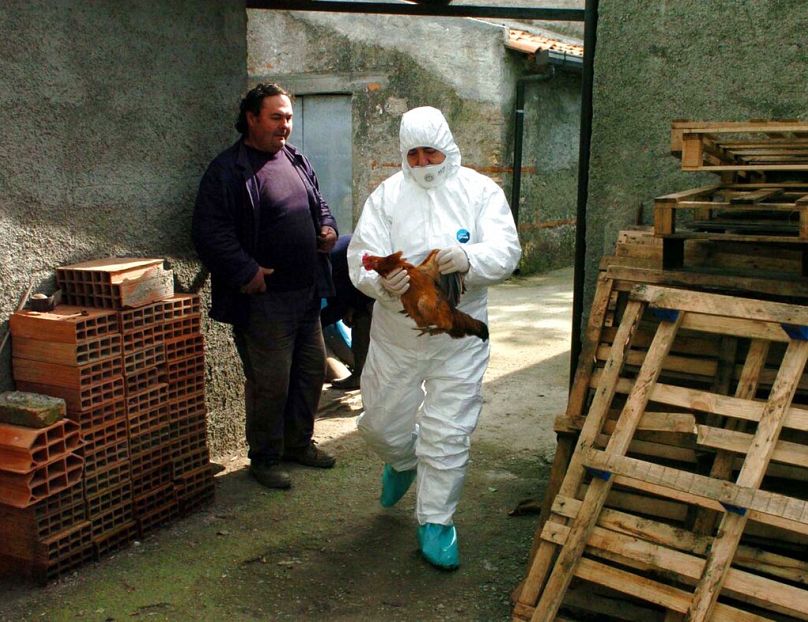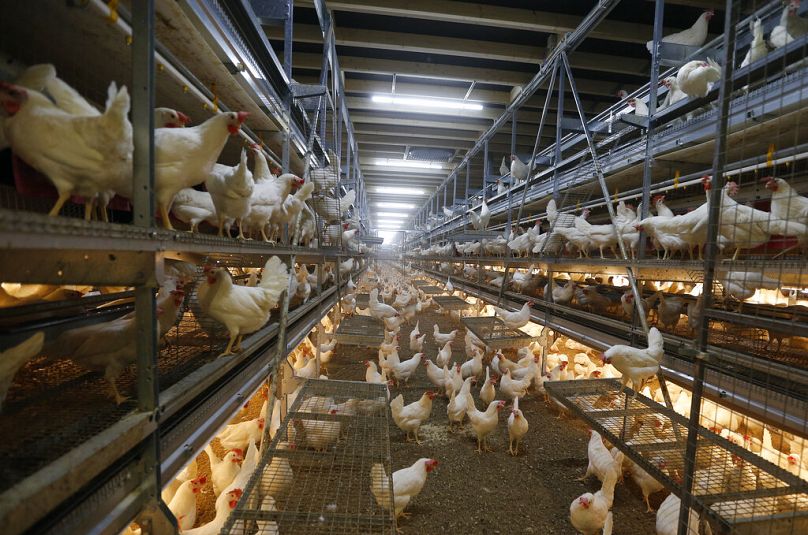There is no single solution for avian flu. Rather, each country must adopt the appropriate blend of policies and support that best enable poultry farmers to protect both their birds and their livelihoods, Roxanne Feller writes.
Reports of the potential to breed chickens genetically resistant to avian flu will have come as a welcome boost to Europe’s poultry farmers after last year’s unprecedented outbreak.
Some 50 million birds were killed or culled across 37 countries in 2022 in the worst epidemic the continent has seen.
Avian flu originates in wild birds but affects domestic flocks that come into contact with infected animals.
As the autumn migratory season gets underway and the risk of spreading the disease once again increases, farmers and conservationists will therefore be desperate to make use of any and all options to avoid similar losses.
Prevention improves protection
But while the prospect of a gene-edited, flu-resistant chicken is a significant breakthrough that would protect animal welfare, food supplies and agricultural livelihoods, the latest development is only the first proof of concept, making it years from reaching farms.
Moreover, research found that higher doses of the virus led to breakthrough infections in resistant chickens, meaning that preventative and protective measures would still be necessary.
As Europe braces for this season’s outbreak of avian flu, it remains critical that farmers are supported with the full range of veterinary tools and services to protect animals and minimise losses.
This includes resolving trade policies around vaccination, which can enhance control measures and help prevent the spread of disease.
However, many countries will not import meat from vaccinated birds because of difficulties distinguishing between immunity and infection.
Different countries, different solutions
France took the first step towards normalising poultry vaccination against avian flu when authorities began vaccinating ducks earlier this month.
However, this triggered immediate trade restrictions from countries such as the US, Canada, Japan, Taiwan, and Hong Kong, reinforcing the sensitivities around balancing animal health and welfare with agri-food trade.
Backing research efforts to develop vaccines that distinguish immunised animals from infected animals, known as Differentiating Infected from Vaccinated Animals (DIVA) vaccines, offers hope of navigating this trade-off.
In the meantime, farmers who do not or cannot vaccinate their birds should also be supported to adopt measures that protect poultry and reduce the risk of disease spread.
This includes encouraging biosecurity and hygiene measures to keep chickens a safe distance from wild birds that could be carrying the virus.
Farmers should be supported to house their flocks in barns in high-risk areas while also ensuring wild birds cannot contaminate feed or water supplies.
Finally, poultry producers should also be empowered and equipped to work closely with veterinarians and public health authorities.
Not only is this important for maintaining the health of each flock but it also limits the spread of disease beyond the farm and even beyond birds.
Diseases know no borders
Monitoring the health of poultry is vital for early detection of diseases like avian flu so that outbreaks can be curtailed before they grow.
New animal health tracking technologies can support farmers to do this more efficiently with artificial intelligence able to analyse audio and footage to identify signs of illness.
Digital technology also makes it easier for farmers to report cases of bird flu to inform public health responses and warn other producers.
Ultimately, there is no single solution for avian flu. Rather, each country must adopt the appropriate blend of policies and support that best enable poultry farmers to protect both their birds and their livelihoods.
As the world now knows well from the COVID-19 pandemic, disease knows no borders, meaning that preventative and protective health measures are necessary everywhere to protect everyone.
Roxane Feller is Secretary General of AnimalhealthEurope, Europe’s animal health association.
At Euronews, we believe all views matter. Contact us at view@euronews.com to send pitches or submissions and be part of the conversation.

















